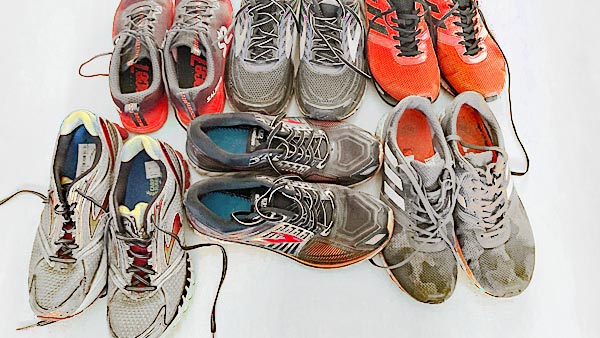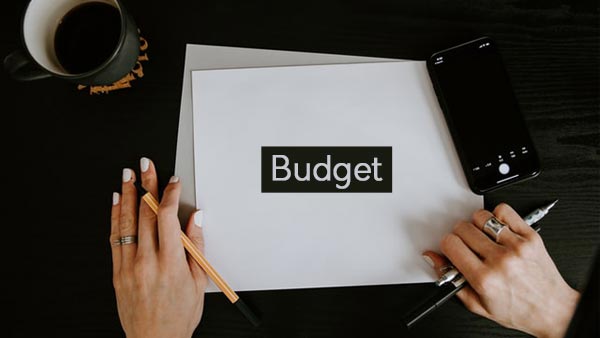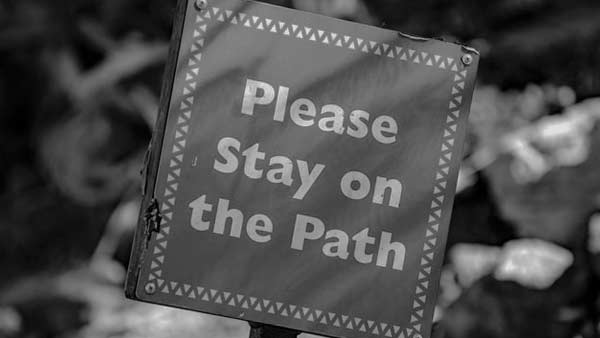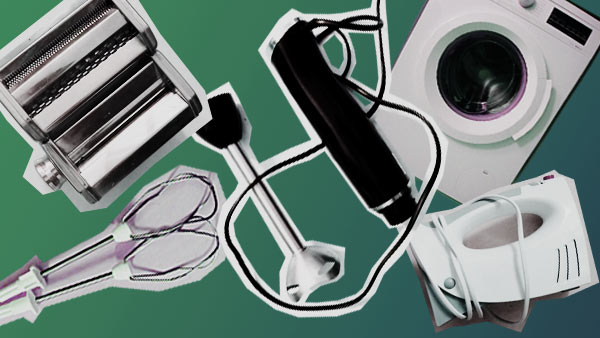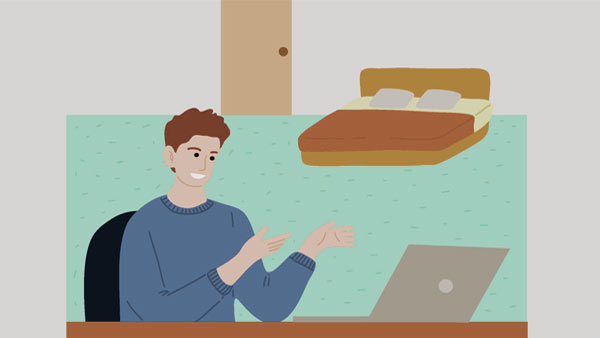People who want to live frugally need to be assertive. Why? Because if there are no goods that scream “buy me”, then there are certainly friends out there that say “spend with me”. Be it at a bar, restaurant, club or a shopping spree with the BFF.
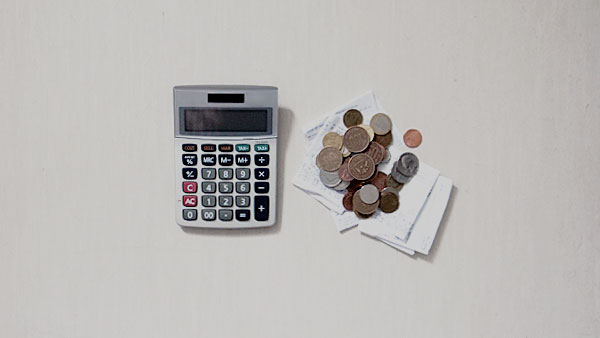
The possibilities to part with money are endless.
One “positive” side effect of frugality, can be to learn to be able to say no, and lose the fear of missing out aka FOMO. Learning to say “no” without guilt might even boost confidence, because, if one only does what one deems as important, and live life that way, is that not the path to contentment?
How many times, are we doing things because someone else said, that we should, or because of social pressures? If you are like me, then the answer is probably; quite a lot of times.
You are reading this, because either you want to live frugally, or because you are curious and want to see if a frugal life is something that you want to pursue.
Most people think that frugal living is all about missing out. Saying no to all the things that are fun. Living an anti-hedonist life full of deprivation. However, the contrary is the case. Living frugally can mean to live a richer life. Frugal living means taking financial control, living responsibly and spending money only on the things that make you happy.
How to start with frugal living?
Monthly spending can be defined in very few categories. These are:
- Rent/Bills
- Food
- Clothing
- Entertainment
- Personal Hygiene Products
- Household Purchases
Each of these categories has areas in which money could be saved.
How to save on rent and bills?
Saving on rent is probably not possible unless the city you live in has some rent control law you could try to enforce on your landlord. However, one can certainly save money on utilities, such as energy and water. The good news is that it is super easy and doesn’t mean discomfort.
How to save money on energy?
It’s not necessary to cook a different meal every day. Incorporate salads once a week and cook double portions a couple of times a week that can be quickly heated up.
If you are using an electric stove cooker, switch off the cooker first. Let the rest of the heat finish the job. This can be several minutes and you’ll use up all the energy.
Make sure you purchase energy efficient household appliances. When washing clothes make sure to use the eco-friendly programme. This takes longer because the washing machine doesn’t heat up the water as often as it would in faster programmes. It lets the clothes soak for longer in the soapy water making them as clean as with the faster programmes.
Change the temperature of your fridge and make sure to de-ice it frequently. It’s not necessary to have the temperature at its absolute lowest. It uses up more energy to cool to ice age levels. Most fridges, especially those that have a freezer section within the main compartment, are cool enough on the lesser cooling settings.
Use energy efficient LED light-bulbs.
How to save money on heating?
Visit your local DIY store and get door and window insulators. These are made out of either silicone or foam. They can be cut to its desired length, are available in different shapes and are usually self-adhesive. They cost very little money and last several years, but they do keep the draft out and can make a difference to your heating bill.
Keeping room temperature constant uses less energy than flash heating a room from cold to warm.
Get heat insulating curtains. However, make sure that they are not covering up the radiator, as otherwise they’ll block the heat.
How to save money on water?
If you, like me, like bathing a lot, try to cut it down to a couple of times a week. A 5-minute shower should be sufficient most days. This will save you energy as less water needs to be heated.
How to save money on food?
Don’t buy fresh products in bulk even if they are cheaper
If you are single or live in a small household, you might feel tempted by those ‘buy 2 for 1’ offers on perishable foods such as bread, vegetables and fruits. Avoid them! Only buy what you know you’d be able to eat even if it doesn’t seem like a good deal. Buy less rather than more. Ever bought the 1.5kg sack of mandarins and then realised that on day 5 half of them gone bad?
Never go without a shopping list
Plan your meals and shop accordingly. Make a list and only get what you need.
Eat more cheap but tasty staples
There are about a million recipes for the humble potato. It’s incredibly versatile. Oats, lentils and pasta are filling, satisfying, and cheap too.
Buy seasonal
Seasonal products are cheaper. It’s possible to get a sack of carrots for the price of an avocado. Not saying that avocados are to be avoided, but it should not be a staple unless they are growing somewhere near you. In the northern hemisphere it can be more difficult in the winter, but summers offer plenty of choices, from cabbage to broad beans, mushrooms, eggplants. A basket of goodness.
Don’t waste food
We have all seen her, the wrinkly paprika. Whoosh! In the bin. Wrinkly paprika are fine. So are springy carrots and wrinkly potatoes. Try to use these vegetables. For example; oven roast them and blend them into a soup. Making something edible out of something that would have ended in the garbage. Also, do not aways trust the sell by date. Always smell, touch and taste first before disposal.
Related Article: 13 Ideas On How to Save Money On Groceries Without Bulk Buying
How to save money on clothing?
Most people have too many rather than too few clothes. The best way to save money on clothes is to have a uniform and personal style. The effect of a uniform is, that there is no need to chase after the latest trends.
Buy second hand
It’s cheaper, and if you are lucky you can get a really good deal.
Frugal living: do a shopping fast
You might think that you don’t have anything to wear, but it’s actually easier to decide what to wear if the wardrobe isn’t overflowing with clothes. Too much choice can make making decisions harder.
Related Article: A List of Ideas About How To Save Money On Clothes
How to save money on entertainment
For some it’s an all-nighter at a club, for others a good book or a theatre performance. Find out what you like doing the most and plan accordingly. Being frugal doesn’t mean that you should be missing out, but to be selective. Going out to the theatre if you hate theatre to make a friend happy, is okay once in a while, but not frequently. The same goes for bars and clubs, if you don’t like them, avoid them.
Find options of free entertainment
People are habitual creatures, we develop default options for entertainment and do them over and over. For example, restaurant visits every Saturday because you have done so for years. Instead, organise a picnic, or a cycling trip and do that over and over until that will become a habit. Soon you’d rather walk in nature instead of falling out of a pub every Sunday morning.
Saving on personal hygiene products
There was a time when it was impossible for me to walk into a pharmacy or drugstore and not come out with some new bathing foam or body lotion. My cupboard was full of various lotions and potions. However, you could save a lot of money by not buying all of it and/or making your own.
Get a bar of soap instead of bottled shower gels and soap
Soap is not only cheaper and space saving, it is also better on the environment since it has less packaging. A bar of soap also lasts a lot longer than a bottle of shower gel. Plus, you can take it on your luggage without the fear of leakage.
Use oils for moisturising your skin
Oils such as olive or coconut oil work really well in moisturizing your skin. You do not need lotions whose number one ingredient most often is water followed by alcohol. Not exactly ingredients that are known to combat overly dry skin. If you happen to have very dry skin, argan oil and macadamia oil work very well. You could easy add a few drops of essential oil (less is more) to make them smell nice.
Make your own
The oils you use to moisturise your skin can also be used as bath oils. But do not use coconut, it solidifies when cold and could potentially block your pipes. Add a 5-10 ml of oil in the bathtub with a few drops of essential oils, et voila, you have a wonderful smelling bath and will come out of it already moisturized.
Only buy what you need and don’t introduce new products
Stick to a regime. Do not introduce new products. There is no need for 5 different hand moisturizers. Just stick to the one you like and repurchase.
Frugal living and household purchases
Today, I get the impression that we need to optimize every area of our life. And it doesn’t stop with your household. Oh, the pristine pictures/videos of apartments on Pinterest and YouTube. While it’s nice to have a nicely decorated flat, it isn’t necessary to constantly purchase new items to keep up with the latest fashions in home decorations.
Stop buying decorative items that have no use
Home decorations most often have no other use than collecting dust. They are not needed.
Repair and restore instead of buying new
If you have an old wood table that doesn’t look good anymore, try to give it a new life by restoring it instead of buying new. A little paint can bring a replenishment of its old glory.
Give fabrics new life
Towels and bedding often lose their colors over time. White bed sheets get a yellow tinge. For whites, good old soda can bring some ( not all ) of its whiteness back. If all fails, a dye can bring new life into fabrics. You can use the same principle to washed out clothes as well.
That’s it. Frugal living is not difficult. Small, easy steps changes can make a big difference. Making tiny tweaks in all areas of life rather than just one, will help to spread your saving onto a larger surface and will make you live more sustainably in the long run as well.


